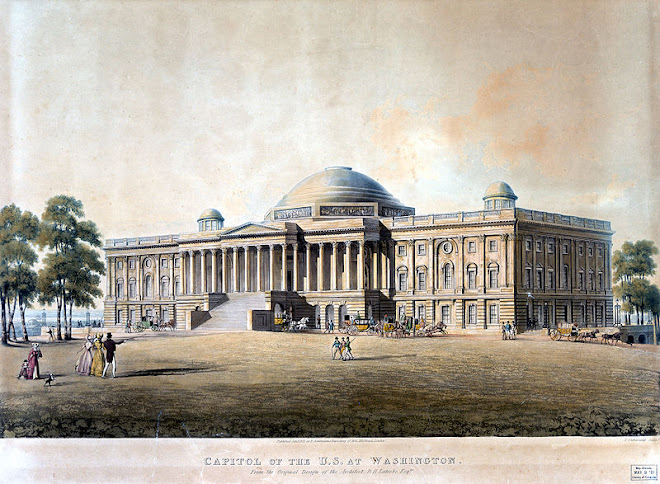From The Washington Post:
Ohio Supreme Court denies group’s signature challenge to health care ballot issue
By Associated Press, Updated: Friday, August 12, 1:07 PM
COLUMBUS, Ohio — Opponents of the federal health care overhaul championed by President Barack Obama scored a key legal victory on Friday that should clear a proposed ballot measure for a fall vote in a pivotal state.
The chance for voters to reject parts of insurance changes will appear Nov. 8, alongside a ballot issue seeking to repeal a contentious rewrite of Ohio’s law restricting collective bargaining. The first is expected to bring out Republican-leaning voters, and the other is expected to bring out Democrats in a state closely divided along political lines.
0
Comments
Weigh In
Corrections?
.
In a unanimous decision Friday, the Ohio Supreme Court rejected a liberal policy group’s lawsuit challenging certification of the issue, to be called the Health Care Freedom Amendment, on the grounds petitions carrying 69,000 signatures were flawed.
ProgressOhio executive director Brian Rothenberg argued that Secretary of State Jon Husted counted signatures on petitions that contained technical errors, including the way paid circulators listed their employment.
Husted, a Republican, argued the challenge revolved around petitions carrying extra information, a practice government should not discourage.
Justices said the secretary of state is “entitled to deference.”
They found that Rothenberg’s charges lacked legal merit, noting “even if his challenge had substantive validity, Rothenberg’s evidence is insufficient to establish that the part-petitions do not have enough signatures.”
Backers of the measure lauded the decision. Ohioans for Healthcare Freedom campaign manager Jeff Longstreth said it will allow “voters to have a choice this fall if healthcare decisions should be made by patients and doctors or politicians in Washington, D.C.”
Husted announced July 27 that the coalition of tea party organizations and other groups behind the measure that submitted 427,000 valid signatures, well over the roughly 385,000 needed to get the amendment on the Nov. 8 ballot.
The proposed amendment to Ohio’s Constitution would keep people from being required to buy health insurance or face penalties. The federal mandate would go into effect in 2014, when new competitive insurance exchanges are scheduled to open.
Opponents say the federal government is overreaching by requiring individuals to purchase a product. The Obama administration counters that Congress’ power to regulate interstate commerce squares the constitutionality of the mandate.
The Ohio court’s decision came as a panel of the 11th U.S. Circuit Court of Appeals in Atlanta struck down the same requirement at issue in Ohio. Other federal courts have ruled or considered the issue, but the Atlanta-based court may be the most pivotal battleground yet because it reviewed a sweeping ruling by a Florida judge.
Rothenberg said ProgressOhio was hindered from fully reviewing all the submitted petitions because 40 percent of Ohio counties refused to respond to a public records request in the time allotted for review.
“Ohioans will now have a choice — to return to the days when children were denied insurance coverage over pre-existing conditions; return to the days when seniors have to choose between prescription drugs and groceries; return to the days when young adults can’t stay on their parents insurance and return to the days when small businesses did not get tax breaks for providing insurance,” he said in a statement. “This fall ‘no’ will be a beautiful word.”
Copyright 2011 The Associated Press. All rights reserved. This material may not be published, broadcast, rewritten or redistributed.
Ohio Supreme Court denies group’s signature challenge to health care ballot issue
By Associated Press, Updated: Friday, August 12, 1:07 PM
COLUMBUS, Ohio — Opponents of the federal health care overhaul championed by President Barack Obama scored a key legal victory on Friday that should clear a proposed ballot measure for a fall vote in a pivotal state.
The chance for voters to reject parts of insurance changes will appear Nov. 8, alongside a ballot issue seeking to repeal a contentious rewrite of Ohio’s law restricting collective bargaining. The first is expected to bring out Republican-leaning voters, and the other is expected to bring out Democrats in a state closely divided along political lines.
0
Comments
Weigh In
Corrections?
.
In a unanimous decision Friday, the Ohio Supreme Court rejected a liberal policy group’s lawsuit challenging certification of the issue, to be called the Health Care Freedom Amendment, on the grounds petitions carrying 69,000 signatures were flawed.
ProgressOhio executive director Brian Rothenberg argued that Secretary of State Jon Husted counted signatures on petitions that contained technical errors, including the way paid circulators listed their employment.
Husted, a Republican, argued the challenge revolved around petitions carrying extra information, a practice government should not discourage.
Justices said the secretary of state is “entitled to deference.”
They found that Rothenberg’s charges lacked legal merit, noting “even if his challenge had substantive validity, Rothenberg’s evidence is insufficient to establish that the part-petitions do not have enough signatures.”
Backers of the measure lauded the decision. Ohioans for Healthcare Freedom campaign manager Jeff Longstreth said it will allow “voters to have a choice this fall if healthcare decisions should be made by patients and doctors or politicians in Washington, D.C.”
Husted announced July 27 that the coalition of tea party organizations and other groups behind the measure that submitted 427,000 valid signatures, well over the roughly 385,000 needed to get the amendment on the Nov. 8 ballot.
The proposed amendment to Ohio’s Constitution would keep people from being required to buy health insurance or face penalties. The federal mandate would go into effect in 2014, when new competitive insurance exchanges are scheduled to open.
Opponents say the federal government is overreaching by requiring individuals to purchase a product. The Obama administration counters that Congress’ power to regulate interstate commerce squares the constitutionality of the mandate.
The Ohio court’s decision came as a panel of the 11th U.S. Circuit Court of Appeals in Atlanta struck down the same requirement at issue in Ohio. Other federal courts have ruled or considered the issue, but the Atlanta-based court may be the most pivotal battleground yet because it reviewed a sweeping ruling by a Florida judge.
Rothenberg said ProgressOhio was hindered from fully reviewing all the submitted petitions because 40 percent of Ohio counties refused to respond to a public records request in the time allotted for review.
“Ohioans will now have a choice — to return to the days when children were denied insurance coverage over pre-existing conditions; return to the days when seniors have to choose between prescription drugs and groceries; return to the days when young adults can’t stay on their parents insurance and return to the days when small businesses did not get tax breaks for providing insurance,” he said in a statement. “This fall ‘no’ will be a beautiful word.”
Copyright 2011 The Associated Press. All rights reserved. This material may not be published, broadcast, rewritten or redistributed.
.gif)





























